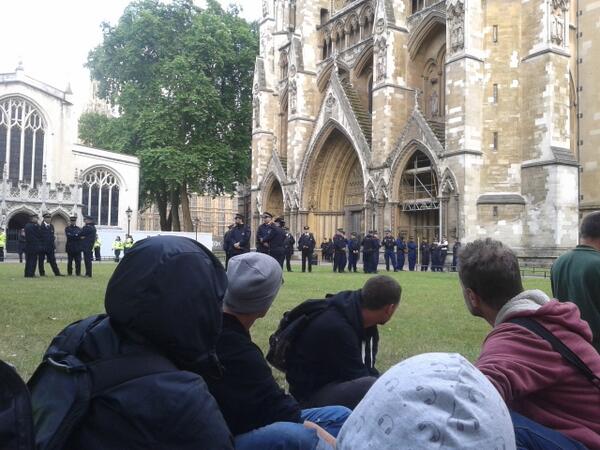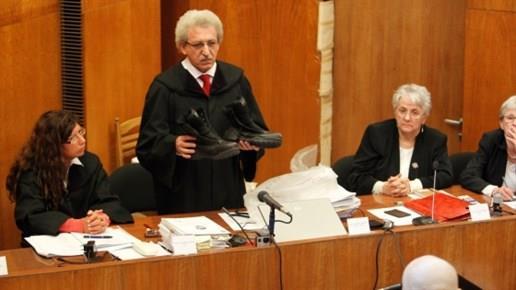Olcsó politikai blöff lenne, ha rögtön azt követelné, hogy költözzön a kulturális államtitkárság Pécsre – állítja a kormányszóvivőből kultuszállamtitkárrá avanzsált Hoppál Péter. Fő feladatának a közművelődési intézményrendszer megerősítését tartja, és az ehhez szükséges pénzért harcba is indul, ha kell. Kerényi Imre stílusát nem nézi jó szemmel, nem kommentálja Fekete György kijelentéseit sem, de az MMA-ban fontos partnert lát. Interjú.
hvg.hu: A kormányalakítás során nem sok minden szivárgott ki az új államtitkárokról, önt azonban már nem sokkal a választás után szóba hozták oktatási államtitkárként – ebből lett végül a kulturális államtitkári poszt. Hogyan zajlottak ezek az egyeztetések?
Hoppál Péter: Hivatalos egyeztetésekre csak az utolsó tíz napban került sor. Előtte informális megkeresések voltak, miszerint a kommunikációs képességeim és a karakterem alapján számítanának rám a kormányzatban. Balog miniszter úr akkor a nekem legtesthezállóbb területnek az oktatásügyet látta, és ezt felém jelezte is. Április hatodika után nyolc héten keresztül csendes várakozó álláspontra helyezkedtem, és később dicséretet is kaptam, hogy nem sikerült kiugrasztani a bokorból; higgadtan és nyugodtan vártam a sorsomat. A miniszterek bemutatása és eskütétele után indult meg a nagyüzem, hivatott Balog Zoltán, és elmondta, örül, hogy miközben végig lehetséges oktatási államtitkárként forgott a nevem, nem tettem olyan nyilatkozatokat, amelyek bármilyen irányba befolyásolták volna a döntéshozókat. Ez már csak azért is bölcs eljárás volt – mondta –, mert nem is az oktatásügyet szánják nekem, hanem a kultúrát. Kértem némi gondolkodási időt. Erre kaptam is ígéretet, ám a halaszthatatlan teendőknek köszönhetően nem is nyakig, hanem az orrom alattig dobtak a mély vízbe az elmúlt két hétben. És jól ismerem az egyes művészeti ágakban meglévő nézetkülönbségeket, hangsúlyokat, művészeti tevékenységemnek köszönhetően sok kapcsolattal rendelkezem.
hvg.hu: Erősre sikeredett a belépője, hiszen kinevezése után pár nappal már a Pécsi Országos Színházi Találkozón vegyült el a művészek közé; nem tudom, volt-e már arra példa, hogy a kulturális terület kormányzati vezetője a művész büfében improvizál éjfél után zongorán. Mennyire volt mindez teátrális belépő?
H. P.: Én is olvastam az erről szóló cikket, a helyzet viszont az, hogy ennek többéves hagyománya van már, Tavaly, de akár négy évvel ezelőtt is ezt csináltam Márta Istvánnal. Miért alakoskodnék? Annak örülök, hogy épp most zajlott a POSZT, a színházi világból – nem csupán a Teátrumi Társaság irányából, hanem a Színházi Társaság részéről is – nagyon sok bátorító visszajelzést kaptam, hiszen a POSZT kapcsán komoly szerepet játszottam a két fél közötti együttműködés megteremtésében, és a kormányzati forrásokért való lobbizásban is. Ekkor persze még nem is gondoltam arra, hogy egyszer majd kulturális államtitkár leszek, csak megpróbáltam helyt állni, együttműködésre bírni a feleket, mint a pécsi kulturális bizottság elnöke és kultúrát szerető ember. Mostanra pedig megindult a párbeszéd a különböző oldalak között, a Magyar Narancs is arról írt, hogy a POSZT a béke szigete lett…
hvg.hu: Tegyük hozzá, hogy ebben nem kevés negatív konnotáció is akadt: a hetilap arról írt többek között, hogy a kiegyezés miatt lényegében érdektelenné vált a fesztivál…
H. P.: Ez igaz, de ezzel a helyzettel kezdeni kellett valamit. Egy jó kulturális államtitkárnak szerintem úgy kell katalizálnia ezeket a meglévő adottságokat, hogy az ne a művészeti produktumok kárára, hanem előnyére váljon. Legyen versengés, nem kell megijedni a pluralizmustól.
hvg.hu: Részt vett a később a POSZT fődíját elnyerő Opera Ultimán is, ami kifejezetten politikus darab, az előadott történet szerint a színészek fellázadnak a buta elvárásokat megfogalmazó hatalommal szemben. Az utóbbi időszakban a jobboldalról több bírálat is érte a politizáló színházakat, ám a jelenlévők szerint ön kifejezetten élvezte ezt az előadást.
H. P.: Tegyük hozzá, hogy erről a darabról pár kiragadott mondat jelent meg. Ez a darab a groteszk színház iskolapéldája is lehetne, és az előadásban megjelenített fehér-fekete éles megosztottság számomra nem elsősorban kormánykritikai élt hordozott, hanem társadalomkritikait. Azt se felejtsük el, hogy egy háborút átélt városból érkezett ez a darab, ahol még jóval érzékenyebbek ezek a témák, mint nálunk. Azt gondolom, hogy ez az előadás mindenképpen értéket képviselt a pécsi fesztiválszínpadon.
tovább: HVG




 MMA countdown – Free Artists welcomes the resigned MMA-members!
MMA countdown – Free Artists welcomes the resigned MMA-members! TRANSZPARENCIÁT!
TRANSZPARENCIÁT!